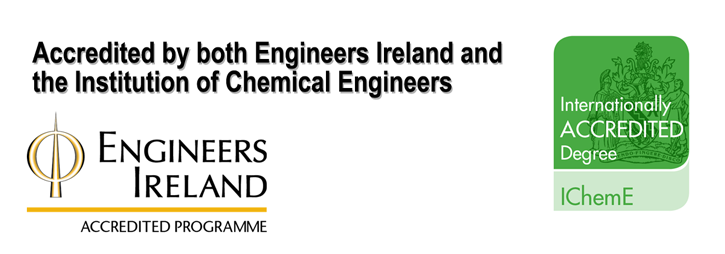Work placement is an essential part of the BE (Hons) Process & Chemical Engineering degree programme. Students work in industry for 22 weeks between 3rd and 4th year i.e. from April to September. They undertake an engineering project on which they prepare oral presentations and written reports. Work placement provides valuable practical experience for the students, while giving the employers an opportunity to complete a worthwhile project and also to evaluate the quality of the student.
Students are available for a 5-6 month placement in the period April-September. Each student receives a wage sufficient to meet living costs. Each student is allocated to an academic supervisor in the Department of Process & Chemical Engineering who visits or contacts the student during the work placement.
The performance of the student is assessed by the industry supervisor, and by the academics following an oral presentation and a written report. The mark for the work placement module is then included in the final year exam marks.
For further information on work placement please contact:
Dr Maria J Sousa Gallagher
School of Engineering - Process & Chemical
University College
Cork
Phone: (021) 490 3594
Email: m.desousagallagher@ucc.ie
Placement is organised in conjunction with the UCC Careers Service.

